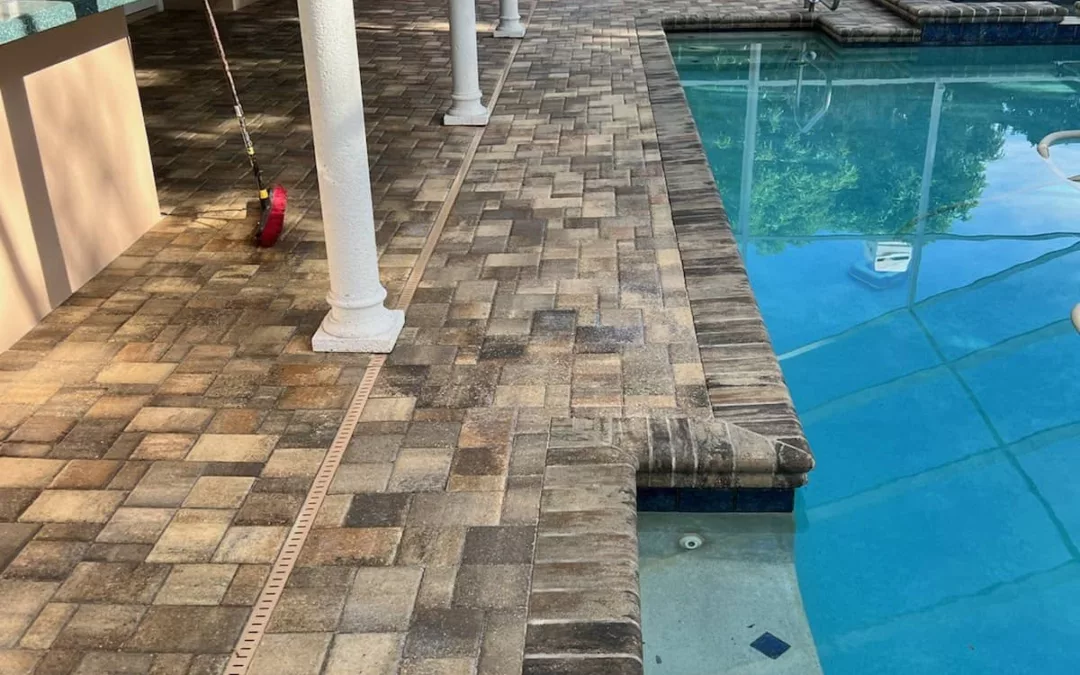Pavers are an excellent choice for any outdoor space. They come in various styles, shapes, and colors, making them the perfect fit for any home. However, pavers require regular maintenance to keep them looking their best. One of the most critical aspects of paver maintenance is sealing. A paver sealer can protect your pavers from damage caused by harsh weather conditions, oil spills, and stains. In this article, we will discuss how to increase the lifespan of your paver sealing, so you can keep your pavers looking new for years to come.
Ultimate Guide to Paver Sealing Maintenance
What is Paver Sealing?
Paver sealing is a process that involves applying a protective layer on the surface of your pavers. This layer can be made of various materials such as acrylic, urethane, or epoxy. The sealer penetrates into the pores of the pavers, creating a protective barrier that repels water, oil, and other substances that could damage your pavers.
Why is Paver Sealing Important?
Paver sealing is important because it can significantly extend the lifespan of your pavers. Sealing your pavers can protect them from the damaging effects of UV rays, water, and harsh weather conditions. Additionally, it can prevent stains caused by oil spills, dirt, and debris.
How to Increase the Lifespan of Your Paver Sealing
- Clean your pavers regularly: Regular cleaning of your pavers is essential to increase the lifespan of your paver sealing. Dirt, dust, and debris can accumulate on the surface of your pavers, creating a breeding ground for mold and mildew. Use a pressure washer or a at low pressure or a garden hose to clean your pavers regularly. A little bit of dawn dish soap can help with any oily residue.
- Reseal your pavers: Re-sealing your pavers every few years can significantly increase the lifespan of your paver sealing. Resealing can restore the protective barrier that repels water, oil, and other substances that could damage your pavers.
- Avoid harsh chemicals: Harsh chemicals such as bleach, ammonia, and acid-based cleaners can damage your paver sealing. These chemicals can break down the protective barrier, making your pavers more susceptible to damage.
- Use a high-quality sealer: Using a high-quality sealer can make a significant difference in the lifespan of your paver sealing. Look for a sealer that is specifically designed for pavers and has excellent resistance to UV rays, water, and other substances that could damage your pavers.
- Fix any damages promptly: If you notice any damages or cracks on your pavers, it’s important to fix them promptly. Damages can weaken the protective barrier of your paver sealing, making it more susceptible to damage.
How often should I reseal my pavers?
ou should reseal your pavers every two to three years to maintain their protective barrier.
Can I use any sealer for my pavers?
No, you should use a sealer that is specifically designed for pavers.
Can I apply the sealer myself?
Yes, you can apply the sealer yourself if you have the right tools and knowledge.
How long does it take for the sealer to dry?
It typically takes 72 hours for the sealer to completely cure. However, you can walk on it typically next day, Drive on it after 48 hours and patio furniture replaced after 72 hours.


